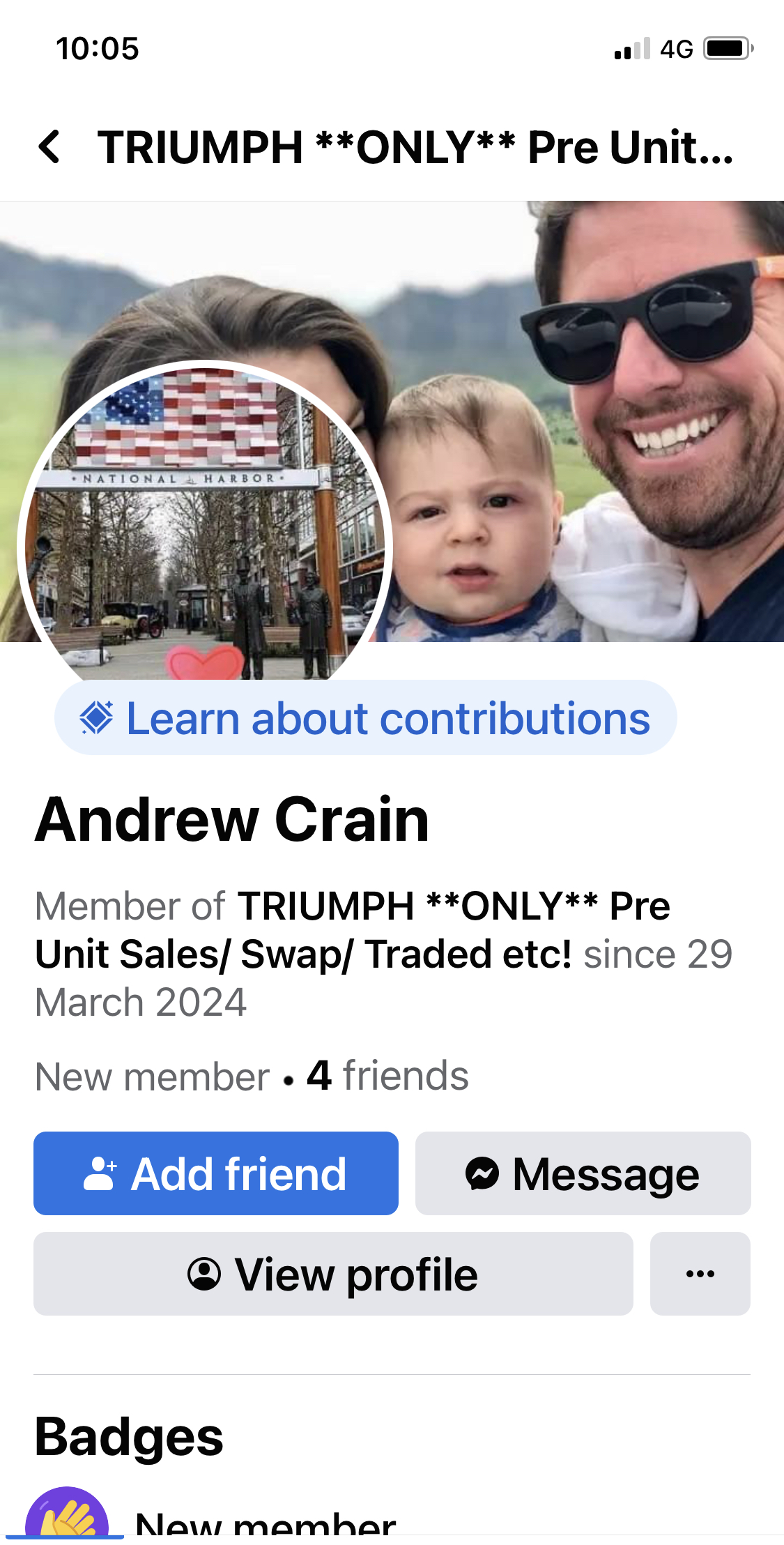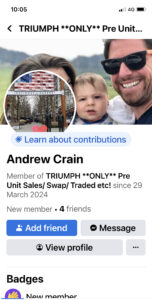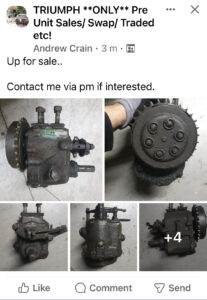How to spot a Facebook scammer

This is for those who are less well-versed with the magic of the internet.
 How to spot a Facebook scammer. Today, I felt compelled to put this information into a group that I am a member of, in Facebook. It would seem that scammers are brazenly offering my parts in Facebook groups filled with internet users who are way too trusting.
How to spot a Facebook scammer. Today, I felt compelled to put this information into a group that I am a member of, in Facebook. It would seem that scammers are brazenly offering my parts in Facebook groups filled with internet users who are way too trusting.Please take the time to read this. Words may be boring when compared to pictures of motorcycles. However, these words may save you a lot of money and upset.
SCAMMERS are all over Facebook. Their sole aim is to relieve you of your hard-earned money without providing what you paid for.
I sell a few interesting parts every now and then. It’s in my interest that this Facebook group is a safe place for you to buy.
I work in “web-world” most of the time, so spotting them is quite easy when you know what to look for.
So, HOW TO SPOT a Scammer and what to do about it.
It’s important to remember that the Facebook profile that they are using is completely fake. The images and names that they use are not the person behind the post that they put into a group.
-
They create a fake profile. They rarely put more than two images in the profile. The main image is usually of a young happy family and the other image might look like a place that they claim to work at. They also have very few friends. The profile is usually just a few weeks old.
-
They have usually joined the group recently. You can see that in their profile.
-
They steal images and (sometimes) the complete description of a part that someone else has advertised. They then create a post in the group. Copy one image and do a reverse search in Google by uploading it. Google should then tell you who originally used the picture.
3a. Sometimes, they keep the description brief and put a low price for the item. They then ask for you to “PM” (Privately message) them. This is a method that takes the discussion away from the group and they can then get you to pay them direct.
3b. Sometimes they are too lazy to write a description, so they steal the text from the original advert. If you are suspicious, Just copy a row of text (2 sentences) and paste it into Google. In theory, Google will deliver the original advertisement and you can go to that advertiser to ask if the Facebook post is them.
3c. Sometimes, they like to bait the hook. In the case of the scammer featured in the images here, he originally posted an engine, mentioning very little about it. People in the group offered suggestions about the engine, year, maker, model. What he really wants is someone to bite on the hook and ask if it’s for sale, in the hope that they pick up a bargain from an unsuspecting seller. The scammer then suggests a chat via Messenger and before you know it you have bought your bargain that will never appear.
3d. They usually turn comments off. This makes you talk to them outside the group. It also avoids people like me calling them out as scammers in a comment.
How can you avoid being scammed?
Follow the advice above and:
-
Do not pay for something if you are suspicious at all.
-
It’s facebook. Check with other Facebook friends in the group to see what they think. Also see if they know the seller.
-
ask the seller questions about the item. Scammers rarely know anything about what they are selling. Recently, I asked for a 1925 James clutch. It’s unique to James. The scammer contacted me privately and actually offered me a James clutch that I sold a while back! He used my pictures and description and had no idea it was mine.
-
ask the seller to take another picture of the item. If they have it, they will take the pic. Ideally ask for a pic with something to date it.
-
Ask the seller where they live. If they answer, ask if it’s OK for a friend to come and collect it with cash. They will refuse as they don’t have the item.
-
ask the seller to take some dimensions. If they have it, they won’t mind. Obviously, the dimensions will need to match your expectations.
Example of a scammer:
 The images here feature the scammer who actually tried to sell me my own James clutch! He claims to be in the USA and works at some military museum. I went as far as checking the staff at the museum. He doesn’t exist.
The images here feature the scammer who actually tried to sell me my own James clutch! He claims to be in the USA and works at some military museum. I went as far as checking the staff at the museum. He doesn’t exist.He is now offering a Triumph gearbox in a Pre-unit Triumph group. The gearbox is a bit early for pre-unit. A bit of a clue.
What to do about it.
Screen shot the scam so that you have evidence that you can post into the group. Then comment on the scammers post about it being suspicious. (Obviously, you need to be sure). Then contact Admin for the group.
Facebook group Administrators are doing a great job but they can’t be all over the group all of the time. We need to play our part too.
Thanks for reading all the way through this.
If you want to safely buy on the internet, go to all of the parts for sale on TheTimingChest.com
If you haven’t been to my Facebook page, here is the link:
